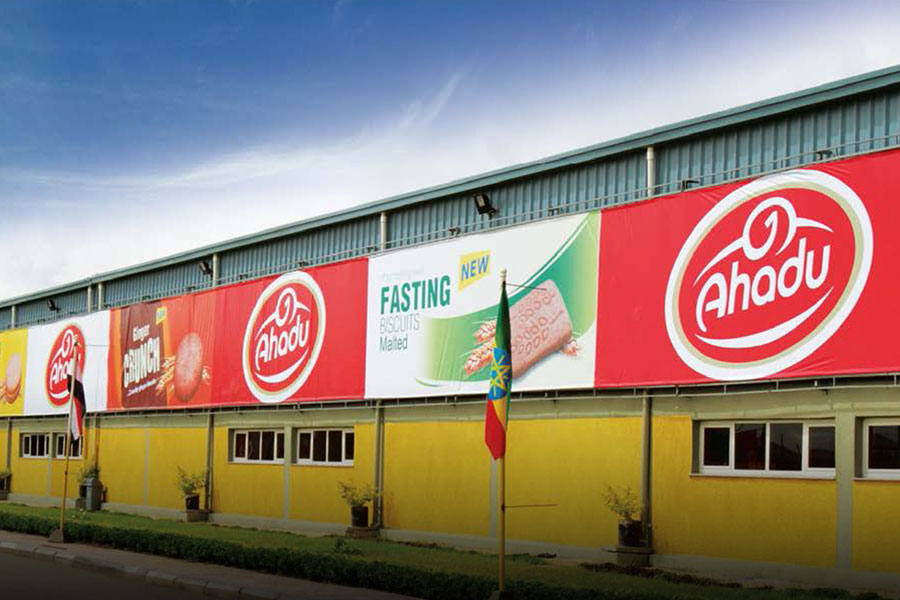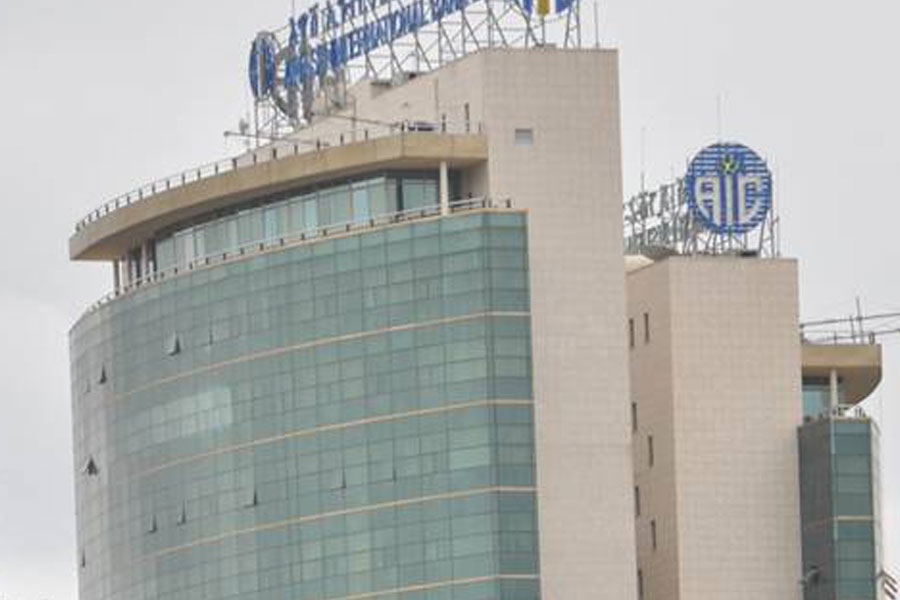
Radar | Mar 30,2019
Jan 5 , 2019
By MIHRET G. KIRISTOS ( FORTUNE STAFF WRITERS )
A local trading company has invested 200 million Br to set up separate flour processing and biscuit manufacturing plants in Awash Melkasa town, seven kilometres away from Adama, Oromia Regional State.
Built by Dina Gezahegn Import & Export, the two plants rest on 20,000Sqm of land and have a capacity of processing 820tn of flour a day and 1,200Kg of biscuits an hour. The company leased the land from the town administration and two individuals.
Dina will be joining another 109 registered companies to produce flour from wheat and other cereals, of which 86 are found in Addis Abeba. There are also 4,461 companies registered at the Ministry of Trade & Industry to manufacture biscuits, cake and bread in the last eight years.
Dina will be the fourth investment in Awash Melkasa along with another flour processing plant, a flower farm and a meat processing plant.
The flour processing plant is expected to be operational in a month and a half, while the biscuit factory is awaiting machinery imports. The two plants are expected to offer jobs to 200 people.
The machinery for Dina was supplied by Hebei Pingle Flour Machinery Group, a two-decade-old Chinese firm that supplies flour mill machines with capacities of milling between nine tonnes to 1,000tn of flour an hour. Dina has invested 305,000 dollars in procuring the machinery from Hebei Pingle, a company that supplied the same machinery in 32 countries.
The company is also in the process of importing machinery for the biscuit factory from another Chinese firm, Sinobake Group Biscuit & Cookie Machine, established in 1994 with customers in more than 100 countries. Sinobake is supplying the machinery, which has a capacity of processing 1,200Kg of biscuits an hour, for 740,000 dollars.
"The company submitted a letter requesting tax exemptions to import the machinery," Belay Dufera, team leader of investment support and follow at Oromia Investment Bureau, said.
Established in 2001, the company has been engaged in the export of live animals to Yemen, Saudi Arabia and Dubai and the import of automotive vehicles, construction machinery, spare parts, iron bars and steel.
As an expansion, the owners are planning to set up a plant that will process pasta and macaroni for export purposes, according to Dina Gezahegn, general manager of the company.
The factory will have a positive contribution to the nation, which is currently importing flour, according to Habtamu Birhanu (PhD), a lecturer at Addis Ababa University's Department of Business & Economics.
Ethiopia is one of the largest wheat producers in Sub-Saharan Africa, harvesting over four million tonnes of wheat annually. And the nation's demand for the grain is projected to grow by 4.2pc this year. The nation's wheat consumption stood at 6.4 million tonnes in 2017, while the deficit from production was filled by imports.
"It will play a great role in controlling the nation's inflationary pressure," said Habtamu. "Besides, it will be a source of permanent income and jobs for the farmers and employees, respectively."
Habtamu suggests that the company invest in wheat farming to ensure a sustainable raw material supply.
PUBLISHED ON
Jan 05,2019 [ VOL
19 , NO
975]

Radar | Mar 30,2019

Fortune News | Feb 10,2024

Fortune News | Aug 10,2019

Fortune News | Jul 06,2025

Fortune News | Nov 30,2019

Fortune News | Feb 08,2020

Fortune News | Apr 13,2019

Radar | Dec 14,2019

Fortune News | Jul 03,2021

Radar | Jun 11,2024

Dec 22 , 2024 . By TIZITA SHEWAFERAW
Charged with transforming colossal state-owned enterprises into modern and competitiv...

Aug 18 , 2024 . By AKSAH ITALO
Although predictable Yonas Zerihun's job in the ride-hailing service is not immune to...

Jul 28 , 2024 . By TIZITA SHEWAFERAW
Unhabitual, perhaps too many, Samuel Gebreyohannes, 38, used to occasionally enjoy a couple of beers at breakfast. However, he recently swit...

Jul 13 , 2024 . By AKSAH ITALO
Investors who rely on tractors, trucks, and field vehicles for commuting, transporting commodities, and f...

Oct 18 , 2025
The political establishment, notably the ruling party and its top brass, has become p...

Oct 11 , 2025
Ladislas Farago, a roving Associated Press (AP) correspondent, arrived in Ethiopia in...

Oct 4 , 2025
Eyob Tekalegn (PhD) had been in the Governor's chair for only weeks when, on Septembe...

Sep 27 , 2025
Four years into an experiment with “shock therapy” in education, the national moo...